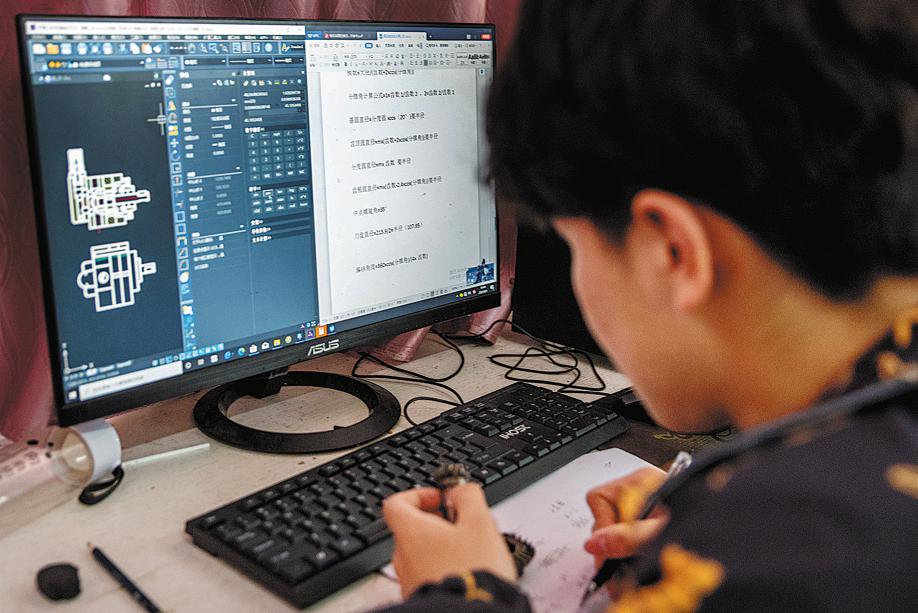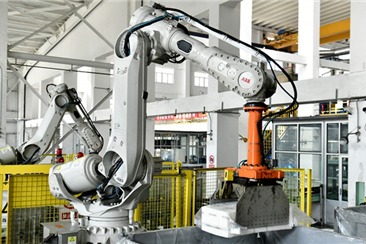Online study seen as key to advancement in career development


Online education is opening new vistas for the country's vocational companies amid the COVID-19 pandemic, as millions of young people pay for online professional courses for self-improvement or new job opportunities.
Kaikeba, an online vocational education firm, has raised 600 million yuan ($94 million) in its B1 round of fundraising and disclosed that the B2 round is on its way. It accomplished that despite big disruptions in the education market as a result of strict new regulations released for the sector earlier this year.
"Vocational education is a core means of talent structure adjustment during the country's economic development. The adjustment and optimization of the talent structure will be an extremely important guarantee for national industrial upgrading," said Fang Yechang, founder and CEO of Kaikeba.
"Also, we are seeing huge demand from students, especially those born in the 1990s, as they chase career freedom through improving themselves or expanding their job opportunities," he said.
Fang said that these young people don't want to "lie down"-a Chinese internet buzzword meaning to stay within your comfort zone-so they are spawning a huge market for vocational education companies to develop.
According to a report by market consultancy iResearch, China's vocational education market is expected to hit 390 billion yuan by 2022, of which the online vocational market will soar 20 percent per year.
Kaikeba, founded in 2012, started by offering online tutoring in information technology to employees of tech giants including Alibaba Group and Baidu Inc. It then expanded into commercial courses like project management and business analysis as well as creative design courses that included three-dimensional modeling.
The company is now exploring the market in some less conventional areas, such as financial thinking, superior communications skills, psychology and even hobbies, which have become popular among young people.
"The online vocational education market will become the mainstay. The average revenue per user will gradually increase as heavy training replaces light training," said Ge Wenwei, a partner at Duojing Capital. "The market will continue to boom and will have a higher penetration rate than during the K-12-kindergarten to 12th grade-period," Ge said.
The iResearch report said COVID-19 has put online vocational education in the fast lane of development, which is likely to greatly accelerate overall online educational development.
But the growth of online vocational education market does not mean that there will be no offline educational growth scenarios for companies, according to Fang from Kaikeba.
"Customer acquisition and growth in vocational education will be both online and offline in the future. Online vocational education will be the mainstay while offline will be supplementary," Fang said.
There also has been strong growth recently in users paying for medical and healthcare classes, according to a report released by Tencent Classroom, an online vocational education platform created by tech giant Tencent Holdings.
Architectural engineering, graphic design, practical English, healthcare and painting are among the top 10 most popular course categories.
Tencent CEO Pony Ma has called for accelerated efforts from renowned schoolteachers and training institutions to develop online classrooms to allow society to "vigorously develop online vocational education".
"The main goal is to help various groups improve their business skills and increase employment opportunities, especially with the development of the industrial internet and the acceleration of digital transformation and upgrading of the overall economy," Ma said.
He said emerging technologies are accelerating integration and innovation in traditional industries, giving birth to a large number of emerging occupations.
"The country is seeing urgent demand for high-quality, multi-skilled talent with strong practical ability and innovation ability, for such fields as 5G, artificial intelligence, the industrial internet and other new jobs," Ma added.
Still, Gao Yan from online vocational livestreaming platform Xuehui said that although people have learning goals and a willingness to invest in themselves, the renewal rate for students is usually low due to limited time and energy.
"Solving the problem of low user renewal rates has become a challenge for many vocational education institutions. Online vocational education institutions should rethink their profit model to determine whether they can go deeper into a certain segment," Gao said.
"They are expected to develop products and services that can be repurchased by users so as to improve the lifetime value of vocational education recipients," Gao added.




































